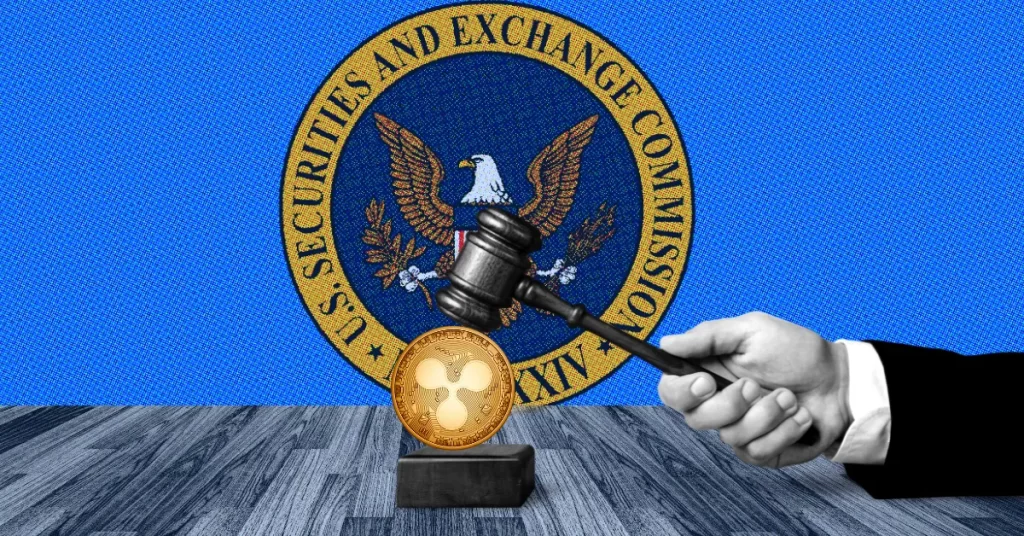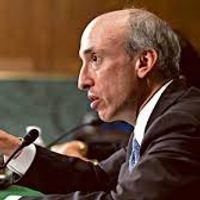
The post XRP Lawsuit: Ripple’s Top Lawyer Asserts SEC Is on the Losing Side of Legal Dispute appeared first on Coinpedia Fintech News
In a striking social media post, Stuart Alderoty, the Chief Legal Officer of Ripple, has drawn a bold comparison between gary gensler

 gary gensler
chairman at US Securities and Exchange Commision
Gary Gensler is an enthusiastic leader and the current chair of the U.S. Securities and Exchange Commission (SEC). He has the extreme experience that spans wall street, government regulation, and an angel teaching about cryptocurrencies and blockchain at MIT. He announced several initiatives to enhance investor protections in the $2 trillion cryptocurrency market. He previously led the Biden-Harris transition’s federal reserve, Banking, and securities regulation agency review team.
He was awarded Treasury's highest honor, the Alexander Hamilton Award, and also was a recipient of the 2014 Frankel Fiduciary Prize. He was born on October 18, 1957, into a Jewish family, in Baltimore, Maryland. Graduated from the University of Pennsylvania, earning a Master's degree in Business Administration. Additionally, he is also a professor at the MIT Sloan School of management. He has served in various governmental roles since the 1990s, such as the treasury department, Sarbanes-Oxley, CFTC, Swaps, Enforcement, Libor investigation, Maryland Financial Consumer Protection Commission, Securities, and Exchange Commission.
Gary Gensler will probably keep on filling in as seat of the SEC until 2026, accepting his renunciation. He has expressed his desires to present crypto-related approach changes later on that include token commitments, decentralized finance, stablecoins, guardianship, exchange-traded resources, and advancing stages. A few officials as well as his kindred SEC magistrates have scrutinized Gensler for not giving adequate administrative direction on crypto, possibly prompting a standoff between Congress and the association.
The SEC, CFTC, and Financial Crimes Enforcement Network handle advanced resource guidelines in the U.S., however, each with various jurisdictional cases, bringing about an interwoven methodology that crypto firms should explore to work legitimately. Whether 2022 will see a more clear way for organizations in the crypto space is questionable, yet the cosmetics of the SEC's initiative will fundamentally change following the takeoff of chief Elad Roisman in the first month of the year. Chief Allison Lee's term is likewise set to terminate in June 2022.
Chairman
, the Chair of the U.S. Securities and Exchange Commission (SEC), and a fictional character, Colonel Nathan Roy Jessup, from Aaron Sorkin’s acclaimed play ‘A Few Good Men.’ Alderoty’s comparison suggests that Gensler, like Col. Jessup, is unyielding and unaccustomed to being challenged.
gary gensler
chairman at US Securities and Exchange Commision
Gary Gensler is an enthusiastic leader and the current chair of the U.S. Securities and Exchange Commission (SEC). He has the extreme experience that spans wall street, government regulation, and an angel teaching about cryptocurrencies and blockchain at MIT. He announced several initiatives to enhance investor protections in the $2 trillion cryptocurrency market. He previously led the Biden-Harris transition’s federal reserve, Banking, and securities regulation agency review team.
He was awarded Treasury's highest honor, the Alexander Hamilton Award, and also was a recipient of the 2014 Frankel Fiduciary Prize. He was born on October 18, 1957, into a Jewish family, in Baltimore, Maryland. Graduated from the University of Pennsylvania, earning a Master's degree in Business Administration. Additionally, he is also a professor at the MIT Sloan School of management. He has served in various governmental roles since the 1990s, such as the treasury department, Sarbanes-Oxley, CFTC, Swaps, Enforcement, Libor investigation, Maryland Financial Consumer Protection Commission, Securities, and Exchange Commission.
Gary Gensler will probably keep on filling in as seat of the SEC until 2026, accepting his renunciation. He has expressed his desires to present crypto-related approach changes later on that include token commitments, decentralized finance, stablecoins, guardianship, exchange-traded resources, and advancing stages. A few officials as well as his kindred SEC magistrates have scrutinized Gensler for not giving adequate administrative direction on crypto, possibly prompting a standoff between Congress and the association.
The SEC, CFTC, and Financial Crimes Enforcement Network handle advanced resource guidelines in the U.S., however, each with various jurisdictional cases, bringing about an interwoven methodology that crypto firms should explore to work legitimately. Whether 2022 will see a more clear way for organizations in the crypto space is questionable, yet the cosmetics of the SEC's initiative will fundamentally change following the takeoff of chief Elad Roisman in the first month of the year. Chief Allison Lee's term is likewise set to terminate in June 2022.
Chairman
, the Chair of the U.S. Securities and Exchange Commission (SEC), and a fictional character, Colonel Nathan Roy Jessup, from Aaron Sorkin’s acclaimed play ‘A Few Good Men.’ Alderoty’s comparison suggests that Gensler, like Col. Jessup, is unyielding and unaccustomed to being challenged.
The Ripple CLO’s criticism stems from Gensler’s recent conduct in legal settings, media interviews, and parliamentary appearances. Alderoty highlighted various aspects of Gensler’s personality that have drawn scrutiny, including allegations of opaque behavior, criticism from government auditors, secretive meetings, and a diminishing global influence.
This critique comes amid escalating tensions between the SEC and the cryptocurrency market. Representative Tom Emmer has proposed restricting the SEC’s authority over cryptocurrencies until Congress establishes clear regulations. However, Gensler remains firm in his stance, ready to confront crypto advocates, reminiscent of the unflinching character of Col. Jessup.
During a recent testimony before the House Financial Services Committee, Gensler faced accusations of consolidating power at the expense of Americans’ financial opportunities. Despite this, Gensler defended the SEC’s impartial approach to technology and stressed the need for nuanced compliance in the cryptocurrency industry, likening the current situation to the pre-regulatory era of the 1920s.
In the Ripple case, the SEC focuses not on the classification of XRP as a security but instead on the legality of Ripple’s secondary sales of XRP. This approach underlines the SEC’s interest in Ripple’s alleged violations rather than the broader classification of XRP as a security.
As the legal and regulatory landscape around cryptocurrencies continues to evolve, this conflict between Ripple and the SEC is a focal point for broader debates about the future of digital assets and their regulation.

 1 year ago
101
1 year ago
101















 English (US) ·
English (US) ·